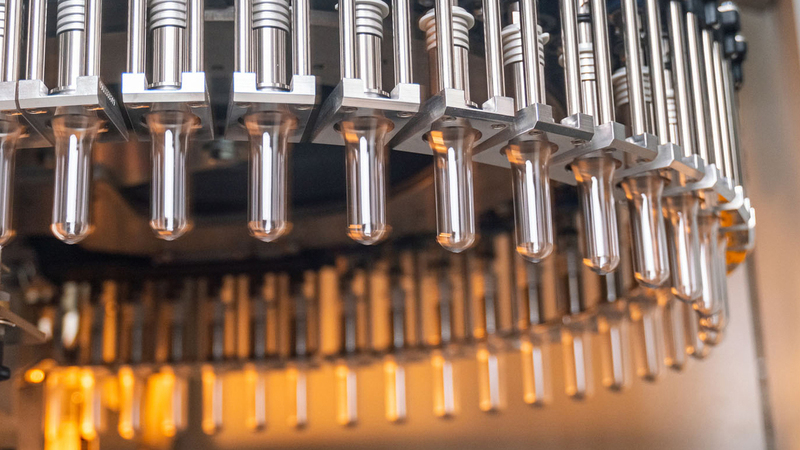Krones presents a new generation of the Contiform


The fourth generation of Krones’ Contiform stretch blow moulder.
Image: Krones
Krones’ R&D team have embraced the goals of environmentally friendliness, sustainability, and cost-effective operation in the this latest evolution of the Contiform.
When it comes to stretch blow moulders, the greatest potential for improvement in these areas often lies in reducing energy consumption in preform heating and in lowering compressed air consumption in the blowing process.
Krones has shortened the distance between the heaters, made the heating space even more compact overall, and redesigned the heaters with parabolic reflectors. As a result, it has cut energy consumption by 11 per cent compared to the previous generation.
The team has also achieved substantial savings on compressed air. Unlike the technology customary on the market to date, the new Air Wizard Triple air recycling system uses a three-stage compressed-air recycling process that can reduce compressed air consumption by as much as 20 per cent.
The focus on sustainability also extends to the materials used in the installation process. As an example, the protective panels are made of recycled plastic.
To further improve total cost of ownership (TCO), the fourth-generation Contiform uses a newly developed skip-and-run technology, which monitors the mould-hanger locking device and allows a blowing station that is not locked to pass along the main cam, for instance to eject a defective preform without triggering an emergency stop of the entire machine. That considerably reduces the scrap rate and eliminates the need for operator intervention.
The new Contiform is now even more user-friendly as it features a large-screen interface with the latest touch technology and improved visualisation software. And assistant systems guide the operating personnel through the settings, even making automatic suggestions.
Krones has developed Contiloop AI, an automatic process control system, and put it to use in the new Contiform. The combination of AI-based software and newly developed hardware makes it possible to detect even the slightest variations in material distribution in the production of PET containers and to automatically adjust key stretch-blow-moulding parameters in real time.
This factor is particularly important when working with rPET, according to Krones. Quality and composition are critical factors when processing preforms made of recycled material – and they can sometimes be rather uneven. So, any inconsistencies have to be offset in the blow moulding process, to ensure that every container meets the specified quality criteria.
Related content
Source: foodanddrinktechnology.com

